Pre-election Armenia: Struggle of interests or ideologies?
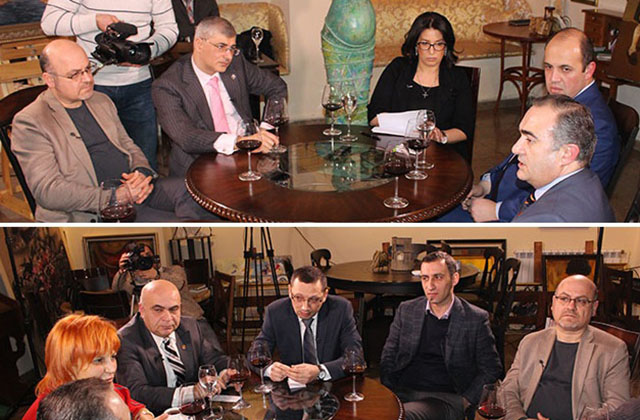
The “Pressing” Club re-launches its debates under “168 Hours” newspaper. In this pre-election period our purpose is contributing to conscious election of voters through debates with the participation of political powers, political, economic and social figures, as well as experts. The project is implemented in partnership with “DEPOP” Institute for Governance and ՞AZAD Pharma AG” ltd.
Topic for February 7 debate was “Pre-election Armenia: struggle of interests or ideologies?”
The topic was chosen on purpose, as it’s clear from the outset—what is currently going on in Armenia almost has nothing to do with ideologies. In pre-election, allied processes we observe how quite opposing political powers with contrary ideological basis are making coalitions.
Which are the reasons for this situation? What has actually led to deconceptualization? Does the society have its part of guilt, as the political figures state themselves?
Is there a society’s demand for ideologies in politics, or the society is in the status of a mechanical consumer? What should be done for that demand to generate? Satik Seyranyan, editor-in-chief of “168 Hours” newspaper, founder of the club, conducted the debate.
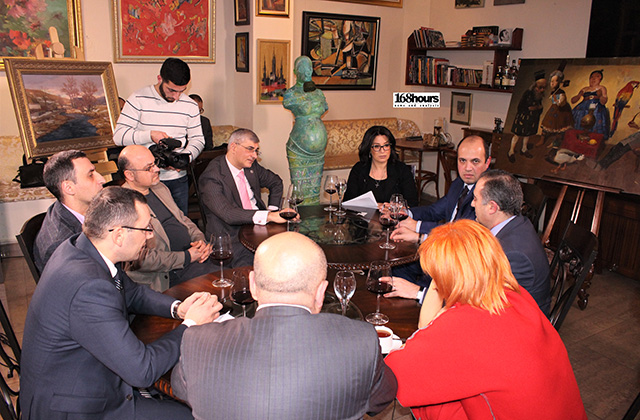
Participants of the debate are: Anush Sedrakyan, YSU associate professor, Tigran Hakobyan, former head of Armenian Public Television and “Armenpress” news agency, PR and media specialist, political scientist, publicist, Ashot Khurshudyan, economist, expert at International Center for Human Development, Tevan Poghosyan, NA “Heritage” faction MP, Armen Mazmanyan, political scientist, constitutional law specialist, Aghasi Tadevosyan, social/cultural anthropologist, Hrant Melik-Shahnazaryan, political scientist, Armen Minasyan, political scientist.
“No one knows what kind of Armenia we want to build”
Satik Seyranyan: My question to Tigran Hakobyan: after independence the same issue seemed to exist in case of the then political parties, and I remember, during my activity as a reporter, when even after political powers were shaped it was stated that there are three political powers in Armenia—Armenian Communist Party, Armenian Revolutionary Federation (Dashnaktsutiun) (ARF) and Armenian National Movement (ANM), which had ideological differences. What is this process of politics—deconceptualization, conditioned by?
Tigran Hakobyan: Let me introduce one clarification. Not there were three political parties, but there were three ideologies: liberal, carrier of which according to authors of that saying was ANM, communist, carrier of which was the Armenian Communist Party, and nationalist, carrier of which was ARF. Here parties aren’t meant as the line of those political parties, if interpreted, each party was inclined to one of these 3 ideologies this or that way. If we touch upon the ideology, three of them were conditioned first, by Armenia’s past, which was one of the most brilliant periods for the many—it was communist period, characterized by wide presence of Armenian Communist Party both in the parliament and public political life. The next one was the issue of ethnic preservation (ARF) and free, independent democratic concept (ANM).
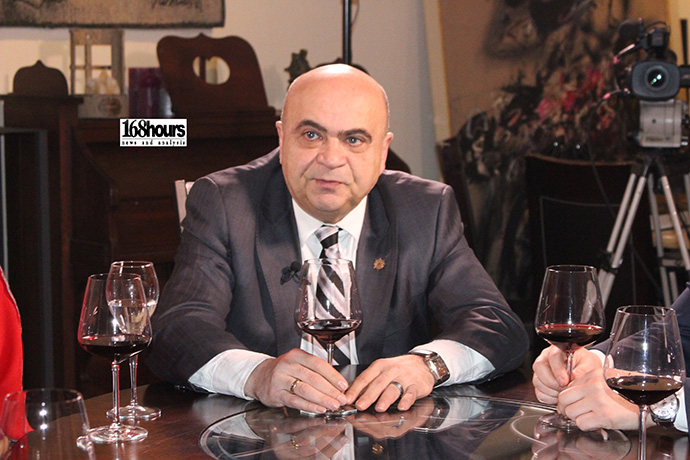
At that time, when the movement was about to start, the Dashnaks didn’t support national state, i.e. in that period wider layers of the society were united by Armenia’s vision, which was that of independent statehood, and one of crucial components of that consolidation was Nagorno Karabakh (NK) issue, because if not that issue, I don’t consider that nationwide consolidation or movement might have had success, i.e. if not Karabakh movement, the component of Armenian Cause, the independence movement could not so actively spread in our country and we might have not been liberated from the Soviet Union. It was 25 years ago.
If at that time there was a vision, and it was that of return to communist and future’s liberal Armenia, then today the society and political parties, expressing the opinion of different layers of the society, don’t have vision of Armenia’s future. I explain that deconceptualization by that in these elections as well. As we think, Karabakh issue is whether or not “resolved”, i.e. any political power won’t say they fight for Karabakh, thanks Goodness, communism faded, died and there are no its carriers, or they stretched to social democracy, liberalism defamed itself.
The reasons are numerous—both objective and subjective, and currently no political power is able to reflect the vision of that future, around which society layers, believing in that ideology or supporting it, would consolidate. No one knows what kind of Armenia we want to build, and ideology is always tended to the future—what kind of a country you want to build and which steps you should take. Just try to name any political party, which provides vision of that future—what will Armenia be like, e.g. in 2030. Let me remind that 15-20 years ago Ruben Vardanyan initiated “Armenia 2020” project, which successfully failed, as components of Armenia’s vision—neither political powers, nor our intellectual, economic elite fed it.
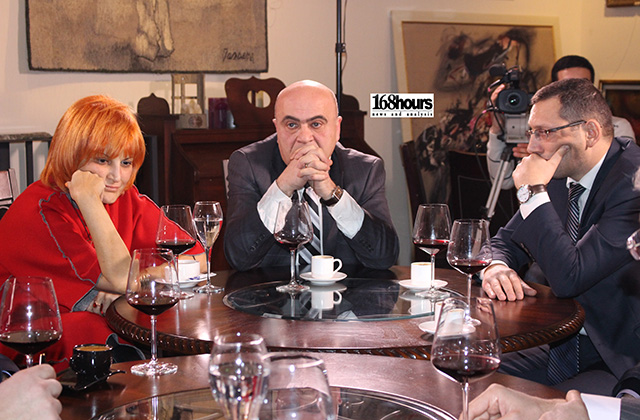
“Currently I see disciples, who want to change many things, but by not accepting people”
Satik Seyranyan: Mr. Khurshudyan, what’s the reason that we are getting more and more alienated from our ideologies?
Ashot Khurshudyan: We aren’t the only one, ideological crisis isn’t observed in Armenia only: in some sense political ideological crisis is taking place in the whole world. There are many factors, however, we couldn’t develop by that ideology for a lasting period due to the reason when Karabakh war was frozen, when consolidation of the state was about to take place in Armenia, at that time Armenia’s future was to be resolved, and of course, there was a dilemma on how to proceed and how to move forward, and in Armenia, like in almost all post-Soviet countries, the same phenomenon was recorded. i.e. mostly economic, liberal reforms, however, when you analyze them, it turns out they don’t differ. That development by one template, in which, political figures basically didn’t participate. That process was a world tendency. Maybe fear mostly led them, i.e. we observed refusal from Soviet order as a priority, but we didn’t know where we were going.
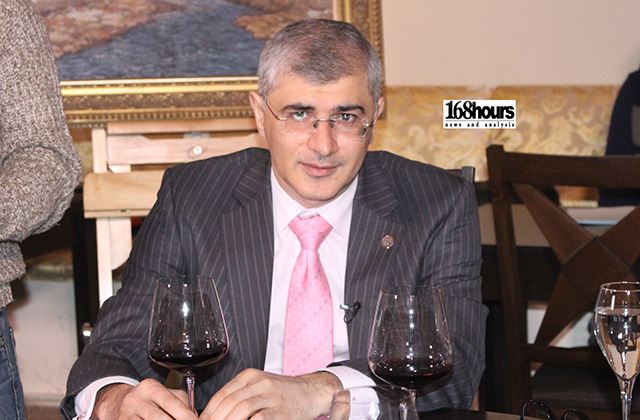
When you read the ideas of early 1990s and of nowadays, they are literate, but actually there were few ideological ideas at that time. Let me note one interesting point: those receiving western education don’t often understand what’s going on in the post-Soviet environment, as an interesting clash was recorded—democracy development was put under one angle, i.e. by one-western direction, which I don’t want to say was incorrect, but it’s its direction. To answer to the question why western model isn’t perceived it should also be observed what happened in our country. If we look at the line of our countries we’ll find many similarities between the revolutionary movements of late 19th and early 20th centuries, and in today’s Armenia, and no matter how strange it is, return to Marx’s theory in the West is observed as well. It’s mainly about polarization and centralization of the capital. Actually, political leadership was opposed by big economic pole, which was more powerful, than any ideology, which could develop without financial or economic grounding. Narodnik movement was occurring in that period, which then turned into Decembrism, then into revolution, and we have passed through that history.
Muratsan’s “The Disciple” is a classic example in case of Armenia: today I see those disciples, who want to change many things, but by not accepting the people. It seems to them they should approach people, change, raise and when failed, migration or deep apathy follows. Political figures, possessing respective leverages, are closer to the people and can even bribe them, than those who have knowledge, but have no authority, want to change something and appear in the shoes of that disciple. And we actually are in that very stage. We don’t have Decembrists, I don’t know is there a millionaire in Armenia, intending to change the leadership, and revolution is becoming people’s alternative. Poverty is really high in Armenia, there is a serious centralization of capital, and the answer to the political question, which frankly, I don’t see from none of the powers, I don’t accept dispossession either, how should that future be in 2030, where income distribution will be implemented differently? I don’t have answer to this.
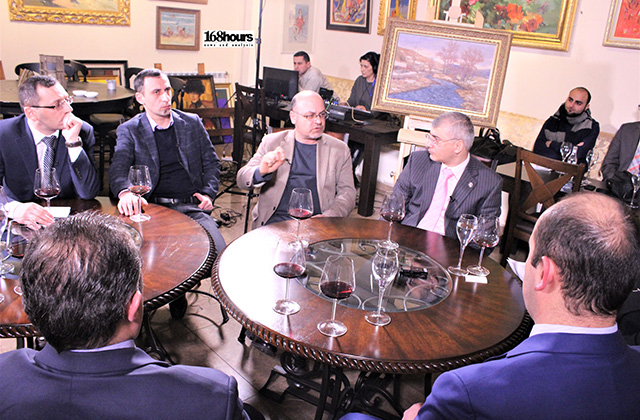
Satik Seyranyan: Mr. Poghosyan, according to Ashot Khurshudyan these processes aren’t only those of Armenia, but exist in the whole world, and the first question the political powers face is seeking financial sources. Any power should deal with the authorities to have that funding. Does it or RA Law on Political Parties contribute to deconceptualization of political parties, as an issue is being set—how to seek finances for political activity of the party (holding territorial organizations, spreading political activity and etc)?
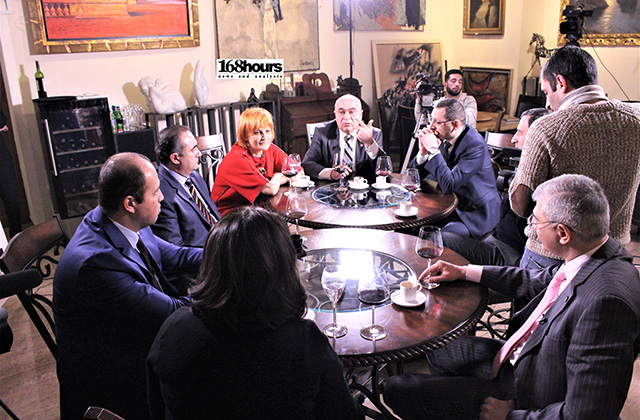
Tevan Poghosyan: Funding of political parties comes from membership fees. People should believe in the values, share those values, develop those teams, have their visions and have respective finances from membership fees to bring their plans into life. Logic should have been this both pursuant the law and theoretically. Practice always shows the contrary, as when we look how new political parties are being developed, they are not values, but personal ideas. The very liberal ANM gave birth to around 30-40 political parties. No one after it attempted to propagate his/her ideology, move it forward, they were more personal. Those in the leadership at that moment, created the opportunity for their teams to move forward and possessed finances or property. Then a different situation was shaped, as again by issue of persons they separated from ANM and became National Democratic Union (NDU), Republican Party of Armenia (RPA) and etc.
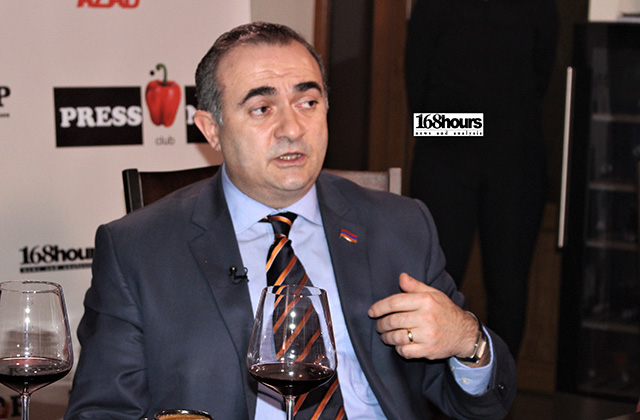
There may be a situation tomorrow that from a Republican they may become another phenomenon. Now I don’t know what generation change we should pass, but when after it the middle class is developed, ready even to undergo tortures for two-three months, if necessary, but will be able to stand, will be able to perceive him/her as a client and say I’ll give you money if you develop my plan…Why is election bribe widely spread among our public? An oligarch comes and says—bro I order this music, do you accept? He gives money, if that person takes the money, let it be 5 or 10 thousand drams or dollars, then music client is becoming another person.
Naturally, I’ll be the client, when I’ll pay for the vision of my political party. Under current state of affairs the financing in the perception of our opposition allows keeping a small office, 1 assistant to answer the phone calls, but then comes a situation—let’s develop, e.g. some analysis. To do any analysis in a normal country you should apply to experts. Maybe they’ll do it once or twice, but after some time any person consumes. You should be able to make use of the market—order analysis in different centers.
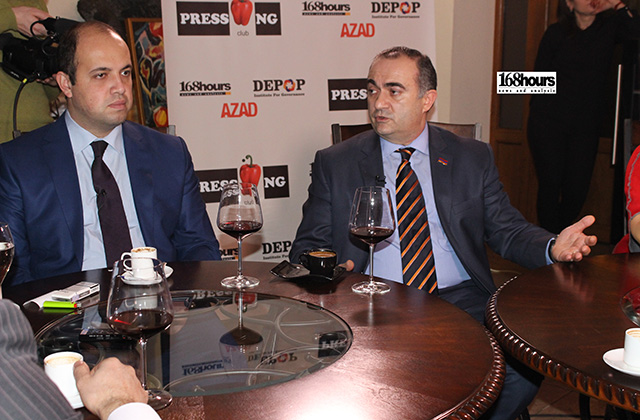
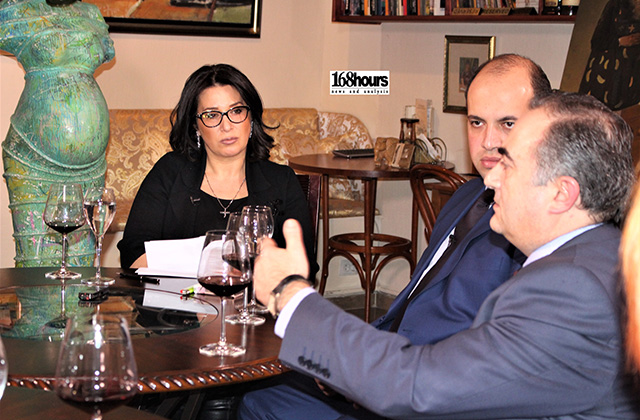
It always seems to people that money for political parties should necessarily be dirty or shadow, as that culture was developed in our country. However, finally, any political party in a developed country has its analytical center, newspaper, political school, teams. Political parties develop institutes, by which they then develop their vision, package. That issue isn’t developing in our country, as we don’t have a middle class, and it’s written in political rhetoric if you have about 60% middle class, you’ll reach democracy, as only that time people aren’t really sold and they order the music.
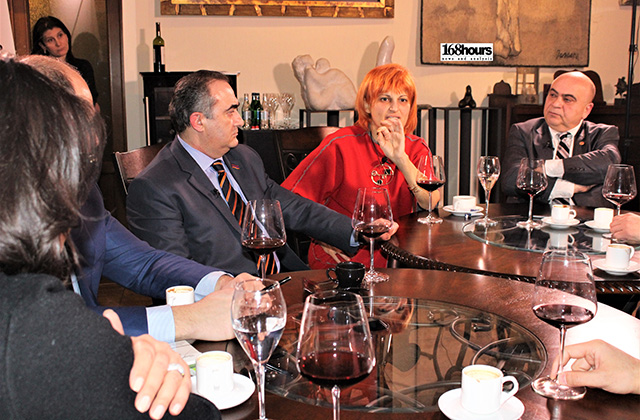
There are stereotype approaches in our country: if that group was in the opposition, spoke well, criticized well, then let’s always take it as opposition. When pre-election period starts there is no authority-opposition concept for me. All political parties come to offer an alternative to me, and I should decide for myself who will become among the authorities or the opposition in the future. However, initially there is opposition and authorities by the labor book, and the difference is whether it’s going to opposition by 30%, or by 20%, and they—by 80% or 60%? And idea of some contestation is developed, which doesn’t allow either that even people, who maybe really attempt to bear perception of the value, develop it as a political message. Until our youth imagines, that time has come to elect a political party, and doesn’t consider party membership as labeling, we’ll have this situation. We don’t understand what are political parties meant for: it’s a tool, which public should use, but in our country the reverse situation is observed.

Satik Seyranyan: In some sense Soviet perception is proceeding, when people were recruiting to the Communist Party to record some progress in their carrier and etc.
Tevan Poghosyan: It comes from the Soviet period, maybe in that period it was one political party, and currently—1.5 political system.
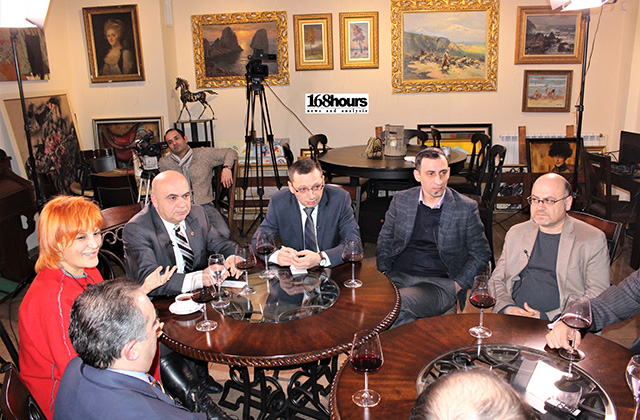
“We’ll edify consolidation of ideologies in a long-term perspective”
Satik Seyranyan: Mr. Mazmanyan, particularly after Constitutional reforms it’s being touched upon that election ranked voting system more alienated us from fight of ideologies (it said—ranked voting system is veiled majoritarian). Is there such a fear or no? Can the laws and amended Constitution have an effect on this process?
Armen Mazmanyan: In fact, laws can influence, however, I’m not sure that these Constitutional reforms will really lead to that. While planning the Constitution, they knew what electoral system will be established. The element of majoritarian was bigger in the previous election system, that specific gravity of the ranked voting system, so let’s not underestimate the role of that proportional representation.
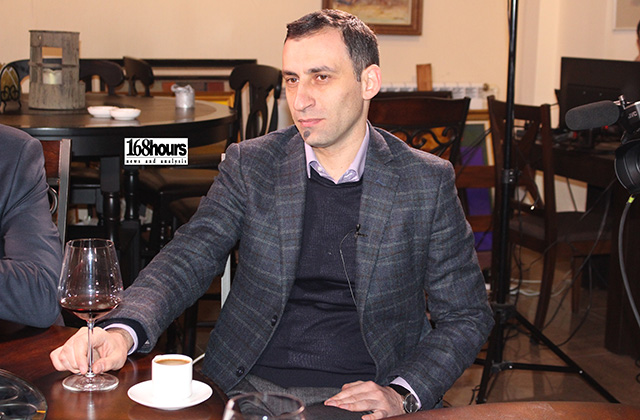 We may not feel it in these elections, however, in a long-term perspective, if, of course, Constitution isn’t changed again, it’ll play its role and we’ll see the tendency of that conceptualization. Although I don’t exclude that Constitutional reforms will be recorded again, especially when it’s an easier process. Currently serious analytical materials are available in politics on how election systems impact the development of political institutes. I was against this election system, import of this system, however, let’s not underestimate potential benefits it may bring.
We may not feel it in these elections, however, in a long-term perspective, if, of course, Constitution isn’t changed again, it’ll play its role and we’ll see the tendency of that conceptualization. Although I don’t exclude that Constitutional reforms will be recorded again, especially when it’s an easier process. Currently serious analytical materials are available in politics on how election systems impact the development of political institutes. I was against this election system, import of this system, however, let’s not underestimate potential benefits it may bring.
Satik Seyranyan: Presently many opposition powers particularly state that ranked voting system doesn’t allow any ideological fight, just the contrary, more moves to fight of personalities, authorities, local authorities.
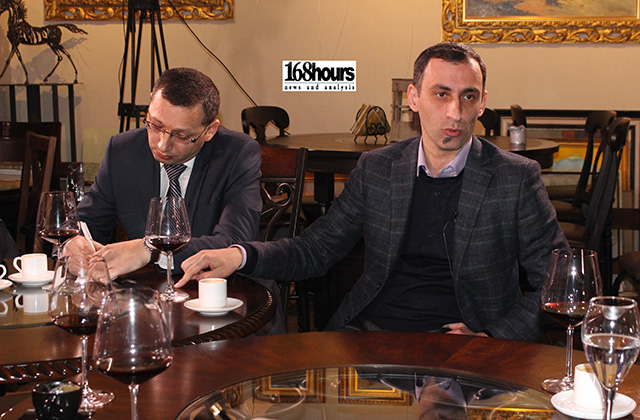
Armen Mazmanyan: Within its specific gravity—yes, but greater part of elections is taking place within party lists, and there specific gravity will be much bigger, than it used to be. Let me repeat once again, in a long-term perspective it may lead to enlargement of ideological fields of the political parties.
Satik Seyranyan: How come? They are persons, who have authority in districts, some parts and have some votes. How will it lead to ideological fight?
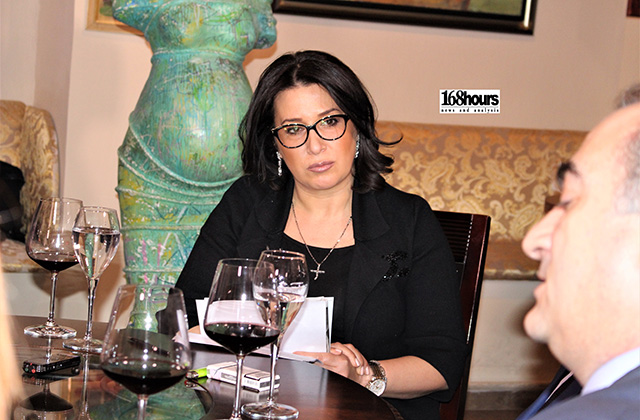
Armen Mazmanyan: Finally, fight of those personalities will take place within the ranked voting system, won’t it? Meanwhile political parties will have to appear with plans, compete with plans. Let’s not forget that in a long-term perspective we’ll edify consolidation of political parties. Currently we observe its tendencies.
Satik Seyranyan: Yes, we do, and that’s the issue, that persons, powers, with no shared interests, are making coalitions. In most important issues, let it be foreign policy, Karabakh issue settlement, economic policy, they have quite opposing views and now they unite.
Armen Mazmanyan: This is the tendency lying on the basis of these reforms, and people were literally stating that those changes are tended to two-party system. It’s another issue that under the conditions of our political culture that two-party system will develop around some ideologies in near future. I have a concern, like it happened in neighboring countries, in particular, in Ukraine, it’ll be recorded on the basis of pro-Russian, pro-European ideologies, which would be destructive in our case. However, in a longer perspective we’ll edify consolidation of certain ideologies, let it be around a tendency or more liberal, socialist ideologies, time will show.
Anush Sedrakyan: When we touch upon two-party system, main candidates are RPA and PAP. I can’t entrap any ideological discordance among them. Both are parties possessing big economic leverages with the same pathetic, patriotic rhetoric by insignificant diversifications: one follows the track of European Democratic Party, and the other—of socialists. But you can’t use it here.
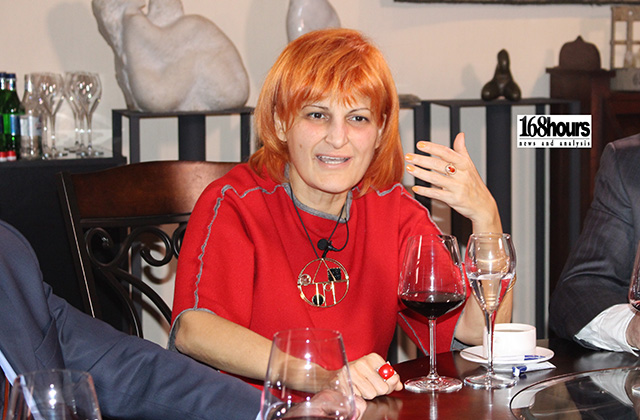
“Country’s security issues, NK issue should hold a serious place in pre-election plans, but..”
Satik Seyranyan: Mr. Melik-Shahnazaryan, political parties, alliances, in this pre-election period in their plans should allocate certain part to Karabakh, security issues. Basically, the same political powers will participate, throughout recent year 1-2 new political powers have been formed, I mean two powers comprising a part of “Yelk” alliance. All of them reflected to these issues in their plans, but very superficially. Do you have any expectancies in that regard?
Hrant Melik-Shahnazaryan: Unfortunately, frankly speaking, I don’t have any. I also want to stress that even the political parties, which were already involved in the parliament or had the opportunity to act, were never involved in it. In Armenia president’s institute and Foreign Ministry deal with that issue.
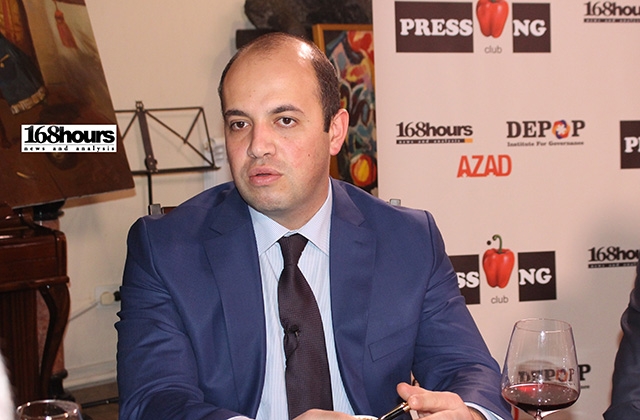
Satik Seyranyan: ANC, however, has a highlighted opinion. Levon Ter-Petrosyan recently touched upon the issue again.
Hrant Melik-Shahnazaryan: This is the very attempt to make this issue a part of political discourse, i.e. that well-known expression by Levon Ter-Petrosyan was an attempt, saying: let’s attempt to give some ideological shape to the campaign or find supporters around this very crucial issue, which really refer to the country’s future and our security. It’s difficult for me to say how succeeded was that attempt. On the whole, it’s clear that extremist approaches are easy to make discussable, however, it’s difficult to keep the discussion wave for a long time and make it a ground for political discourse, moreover, make it a factor, which allows people to orient and cast a vote to this or that power. That’s why I may assure that for the time being even ANC, which raised that issue, isn’t engaged with that issue, but is busy seeking mechanical solutions. Solutions, which would allow gaining the desired 5% result.
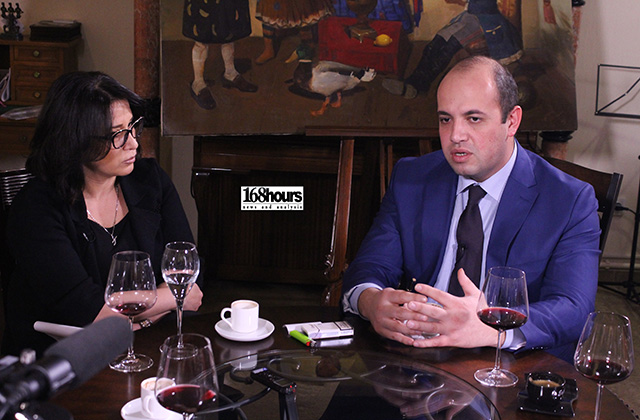
Satik Seyranyan: I disagree, that Karabakh issue may become a topic for PR or public speculation, as different sociological polls showed that settlement of Karabakh issue is the last that excites our society.
Hrant Melik-Shahnazaryan: The same is observed in Azerbaijan as well. I read questions posed to their political parties regarding what priorities they have for the forthcoming year, they all state dozens of topics and Karabakh issue lacks there.
Satik Seyranyan: Can security issues have a guiding role for non-oriented electorate?
Hrant Melik Shahnazaryan: They can and they should, however we see that currently the political parties don’t take that direction, they solve technical issues: who to involve in the list to receive one more vote from a certain electoral district. And security issues are discussed only in expert circles, and not in political ones. And when we started our talk, the issue was whether there was ideology or not. My answer is that it exists, but it doesn’t socialize with political processes. People may think in narrow circles, appear with publications, however, they will just be a topic of experts’ interest and they don’t become real and aren’t involved in political processes as decisive factors.
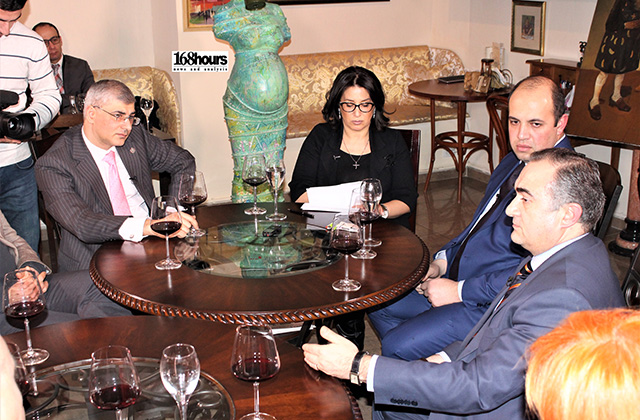
Satik Seyranyan: Mr. Minasyan, what’s the part of guilt of the society in this situation?
Armen Minasyan: Prior to answering the question, about the topic for discussion—when we speak of ideological fight and realize its manifestations, let me remind, that currently, e.g. in Germany deadly opponents social democrats and Christian democrats already have so few ideological contrasts, that they’re making coalition against the third one, i.e. world trend is really different, and under this situation, when ideological contrasts are few, they agree quietly. T.Hakobyan touched upon the crisis of liberal ideology, I pose a concrete question: what is not liberal in economic policy of incumbent government?
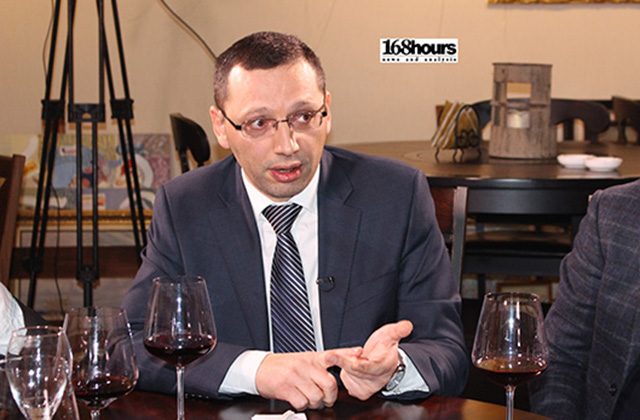
Tigran Hakobyan: If we speak from practical standpoint, then liberal system supposes not only creation of such laws, but also application of such laws. If you create such laws, but monopolies are functioning in your country, then it isn’t a liberal economy. I don’t mean it. Stalin’s constitution was one of the then most democratic constitutions, but the Soviet Union was considered a totalitarian country. In this regard, yes, presidential messages are those of liberal country.
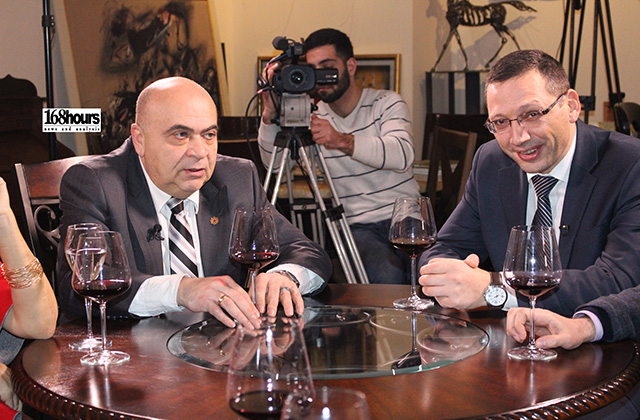
Ashot Khurshudyan: Provisions are liberal, but after the crisis of 2008 the Government considerably increased its interference with economy, subsidies are too many, and there is not a page in Government’s recent action plan, where the word ‘subsidy’ wasn’t found. In fact, interference is big.
Armen Minasyan: It’s a technocratic solution and not political, isn’t it?
Ashot Khurshudyan: I understand what you mean. Currently, compared with all socialist phenomena, yes, government’s action plan is the most liberal, however, interference is too much, and the government too much attempts to provide economic development through direct interference. And the bigger risk there is who to support: this is where people see inequality or injustice.
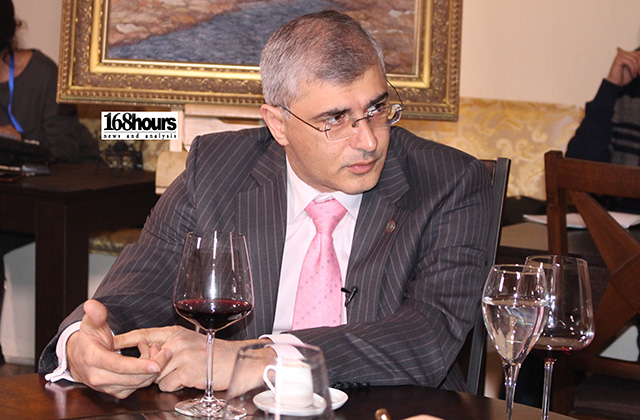
“The Armenian society accepted corruption, that’s why no anti-corruption message is valid”
Anush Sedrakyan: There is a question here, on which Mr. Khurshudyan touched upon as well, regarding by which system post-Soviet states have built their state system. The issue is that post-Soviet states, which had that simple message, which immediately received public support, then they succeeded to realize this simple message in the process of developing a state. These are Baltic countries, their message was obvious—they should separate from Russia and have no connection to the Soviet Union, and go to Europe. That message was receiving public support from inside, and the process of state-building was implemented at once. The same way did Georgia, and not a single time it didn’t subordinate leaving Soviet zone to its conflict zones.
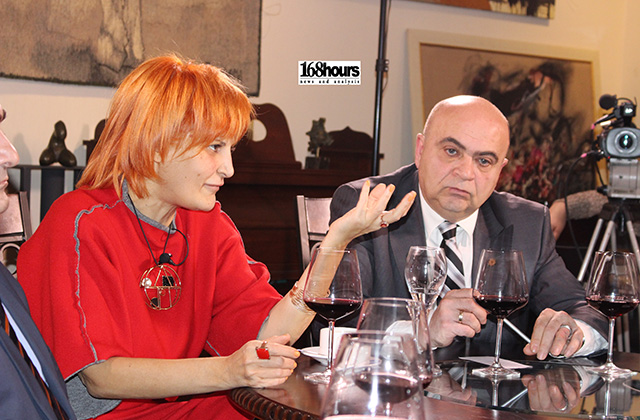
From the Soviet Union period our discourse was developed around territories, i.e. Armenian child is born, let it be in Diaspora or Armenia, territories lie in their subconsciousness. Then it developed on Karabakh topic, i.e. Karabakh discourse is subconscious, and if political powers touch upon it or not, and it’s not social consolidation, but the simple message appropriated by everyone, which is a political plan for Armenia, but it isn’t enough to build a state. That’s why political powers bypass that message. And when Levon Ter-Petrosyan says the issue should be linked to peace, it’s the most productive variant to bypass it. By that he attempts to change the vector of state plan.
Satik Seyranyan: He says development in Armenia is conditioned by that.
Anush Sedrakyan: It’s repeated, but how can it be changed if this state has been built on it? Thus, this state never had a plan to separate from the Soviet Union, it never exited and never became a primary plan, the authorities didn’t put that state model, that’s why whether we want or not, Karabakh issue is on the basis of subconscious state-building. That’s why political powers, dealing with the electorate, should say what solution they should give, should they say let’s solve Karabakh issue? It isn’t real. The society refused all variants of the settlement.
Satik Seyranyan: Ms. Sedrakyan, you say there should be a clear message to the society; currently some political powers started to send simple messages, for instance, linked to the most painful issues—army (that service of soldiers on the frontline is impermissible and that contractual officers should implement the service), the other, as a pre-election promise will announce on elimination of the red lines. Can those messages be considered ideological?
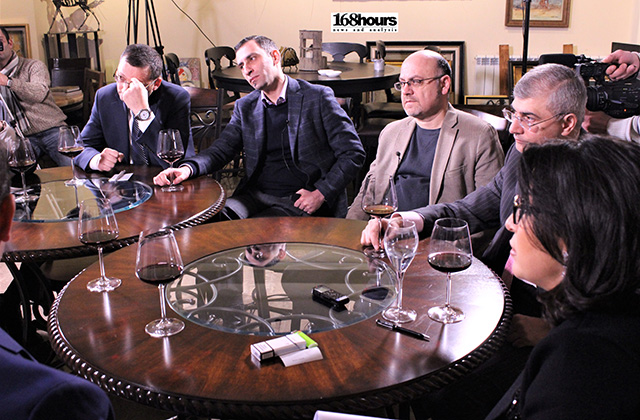
Anush Sedrakyan: No, these messages are tactical, and not strategic. By saying simple message I mean the message of uncovering the principle of state-building system. And, moreover, that message should go not only from political figure to the society, but should return to the political figure. Education model of Armenians is built on three milestones—lost lands, churches and Armenian traditionalist family. Currently those three systems aren’t enough to build a state. The Armenian society accepted corruption, that’s why no anti-corruption message is valid. The political figure should send thousands of anti-corruption messages to the society, every 99 out of 100 persons in the society is against corruption, as he/she isn’t a participant to that corruption, i.e. as he/she dreams of being a part to that corruption, naturally, and doesn’t take that message sincerely and doesn’t follow it. The citizen can’t take that message seriously, even if that message is heard from the most sincere person. Let any political figure state now, that e.g. he/she will ban the activity of the Church, and you’ll see what consolidation will be observed among the public, and what kind of a reverse public wave will be recorded. Our society is the one brought up by traditional concept, accepting priority of the Armenian Apostolic Church, imagining consolidate Armenia. By the way, it’s astonishing for me that heroes of all real epics, i.e. people, who take part in liberation of the Homeland, its defense, they have one high name—Clairvoyant, Great and etc. Only Armenian exoteric consciousness calls hero fighting for liberation a Daredevil. In our historical consciousness, something isn’t in its place in the struggling person, it’s diverted…
Ashot Khurshudyan: The most difficult stage of pre-election process is developing preference, realizing who to vote for. We have 30% poverty, we are aging nation and have rather high age of pensioners, we have people, who orient before elections who they’re going to vote for, they don’t follow pre-election process and aren’t aware…Here quite different communication elements function. Maybe only 10% of voters in Armenia realize who they want to vote for. We don’t see that, as who took part in the elections, he/she saw people coming one after another, e.g. 50 grandmas and they become decisive—those people solve daily issues. Our political parties are on the top, I don’t see political activity on the bottom.
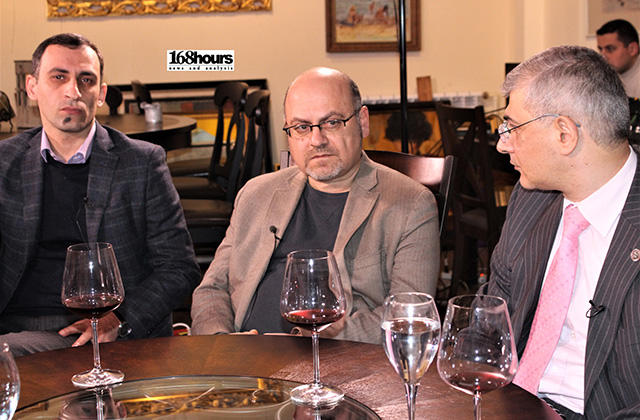
Anush Sedrakyan: No, RPA and PAP are on the bottom, on the foothills, and the “Rule of Law” with them.
“Activity of a political party also requires sacrifice: you should be ready to sacrifice for the sake of ideology, some values. The contrary process is observed in our country, they get involved to gain some benefits. It’s trade.”
Ashot Khurshudyan: Yes, this is a correct example. Let’s look to the world experience: what should be done under such asymmetry—when standard solution doesn’t work, creative one should be sought. For instance, Mahatma Gandhi burnt the well-known fire, told everyone—take off your English clothes and burn them. It wasn’t simply a fire, it was communication, i.e. it should be pondered how to civilizationally get the idea to the bottom what they want, but it’s a rather difficult job. They’re right when they state there is no political party, as the political party, its activity also requires sacrifice, i.e. for the sake of ideology, some values you should be ready to do a sacrifice. The opposite process is observed in our country, they get involved to gain some benefits. It’s trade.
They say there are 3 stages before you become a citizen—first, you protect your buyer’s interests, second—of the customer, and third—the civil. If you fail to do the first two, you won’t be able to do the third one at all. We know people in Yerevan somehow protect interests of their buyers, but in the regions we didn’t even reached to that point. On our country vote is observed not as a right, but a commodity, which is sold, i.e. we face the issue of working with people on the lowest level.
“Societies with no philosophy have no politics either. They are easily lead and it easy to make them work through political parties on clan level”
Satik Seyranyan: Mr. Tadevosyan, why don’t political parties become the mouthpiece of those wide social layers or of the political will of ideological streams? Doesn’t the society give adequate reaction? We touched upon different issues, however, the society often reflects very correctly. If the one giving messages or promises, that political figure isn’t sincere, I consider the society makes the choice like a woman—at the last moment it goes to concrete, real deal, saying, “It’s better if I do this now, as who knows, whether he’ll keep his promise or not.” We touched upon the elite. To say that there is no middle class in Armenia or educated, elite, isn’t correct, however, that layer is very passive and indifferent, maybe they become active within some grant program, however, mainly they’re passive and indifferent. It’s often easy for them to refuse something, saying “ok, I’ll go to find my fortune in another country,” rather than changing anything here. Can we say that the layer of the bottom struggles more for its every day and doesn’t withdraw its positions?
Aghasi Tadevosyan: It seems to me that people and political powers are very balanced. The society is very adequate to the extent, that it’s rather essential what issues you have. People not only tolerate corruption, but it’s one of the practices of their social life, they live that way. My ethnographic practice allows covering very concrete points. When in the regions outdated goods are sold to the person, he/she doesn’t take it back to the store, as he/she considers it’s a shame—what will people think? Thus, elementary consistency of realization of their own lives also intersects with social norm, and there a person should decide whether he/she is moving socially or by the issue of law. A question raises here: in that case when will the law function?
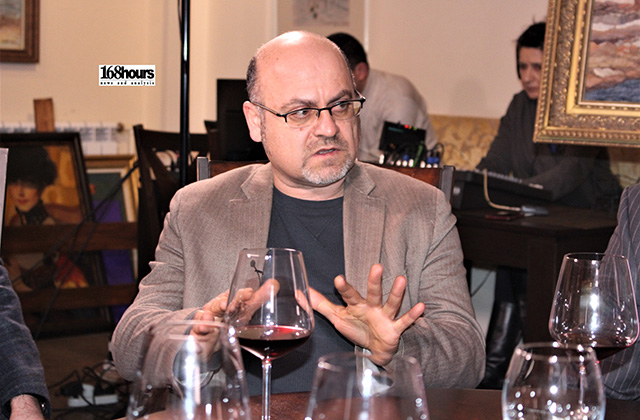
The law doesn’t function in all societies, as it only functions in the societies, which set complicated issues, and accordingly, they need mechanisms to serve to those mechanisms. Law is a mechanism operating to organize relations in a differentiated society. By saying differentiated I mean varied, when the society itself is able to show rational approach to those varying from themselves. In our society, when someone differs a bit from others, we have a rather irrational approach, and start to treat him/her emotionally. For instance, block circles immediately put a boy with long hair under the sign of a woman or sexual minority. Such barriers hinder the perception of a law as a mechanism and setting forward rather complicated issues.
A question raises here: when do those complicated issues emerge and which societies are able to set forward difficult issues? The societies, who set forward the issue of building a modern state and this, in its turn means having great ideas, like, e.g. the idea of equality, the idea of freedom, which are ridiculous abstractions for our society. Armenians say the US society is slow, stupid, but when you socialize with those people, no matter how many books they’ve read, they have guidelines, and those guidelines are their values, and person’s individualism is a value for them, and you feel that at any step. And it comes from the great ides, the issue of freedom.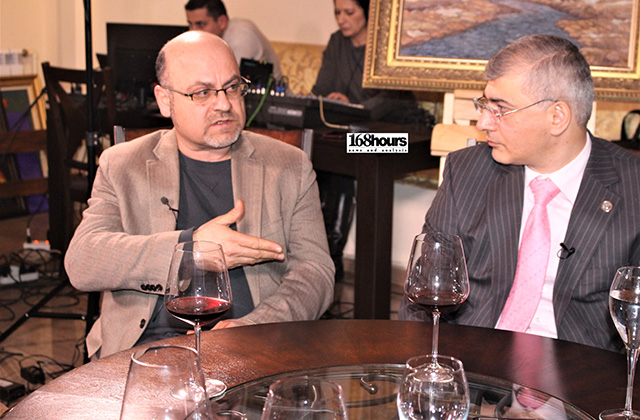
Satik Seyranyan: Who should formulate that idea?
Aghasi Tadevosyan: They are formulated by the elites, and we have had that process.
“They’ll solve their issues through local authorities, at the same time, they’ll neutralize other political parties”
Satik Seyranyan: By saying elite do you mean political powers as well?
Aghasi Tadevosyan: When Europe reached formation of those concepts, they have created philosophy for 400 years, i.e. all their philosophers touched upon it. They spoke on how the body conditions the right to property. People wrote volumes of books on it. Such ideas have been covered by intellectual elites.

The point is, when we look back to Armenia’s transitional period, we notice, that issues have been set on a few platforms—market liberalization, political system democratization, however, no one has set the issue, that we, by refusing socialism’s idea of equality of the Soviet period, what great ideology do we have on the basis of building this society, which is going to be the basis of transition and how, we, turning that idea into micro-narrations, introduce into people’s life so that they gradually counterbalanced that narration of consanguinity, the narration of brotherhood? Look, what relations are there in the National Assembly. Sometimes I read their interviews, seemingly a rather honorable MP, and then you see him talking on the phone “he is our chap.” In this case I hesitate to find solutions and now I remain to that opinion.
Ashot Khurshudyan: Compared with CIS countries, we are in progress.
Aghasi Tadevosyan: The point here isn’t in comparison, but in whether you have that quality and possibility in the society. To build a modern state, we should have philosophy. Societies with no philosophy have no politics either. They are easy to lead and it’s very easy to make them work on clan level by political parties…I’m sure, RPA and PAP will beat the opposition in the elections.
Satik Seyranyan: Who is the opposition you mentioned?
Aghasi Tadevosyan: “Civil contract,” “Bright Armenia,” which are a bit opposition, e.g. “Prosperous Armenia” Party. The authorities have created the mechanism of ranked lists, where they’ll nominate the problem-solvers of the districts, most part of them won’t become MPs, however, through those guys they’ll solve the issue of their votes, at the same time, will neutralize other political parties.
Satik Seyranyan: However, soon all political powers will introduce themselves, all will speak from opposition positions, new coalitions are being formed…How should the society differentiate the opposition from non-opposition? What should it attach attention to in their plans? What should it be guided by in this campaign?
Tigran Hakobyan: Choice should be made not between the opposition-authority, but between the political powers. At large we have nothing to do. It seems to me, we, as a nation, overestimate ourselves. The nation grown the 25 years on provincial, ancient epics, clichés, can’t pass on to high, ideological level after 25 years. I believe that at critical moments Armenia’s collective mind strives, and the activities are joint…If we listen to us all, then the nation should be destroyed together with the state. It can’t be so, but I don’t have any prescription.
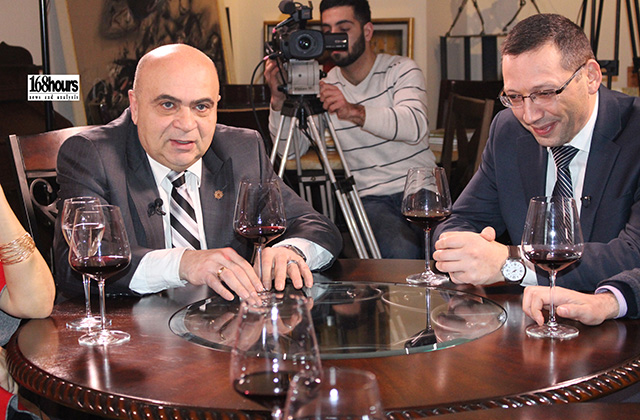
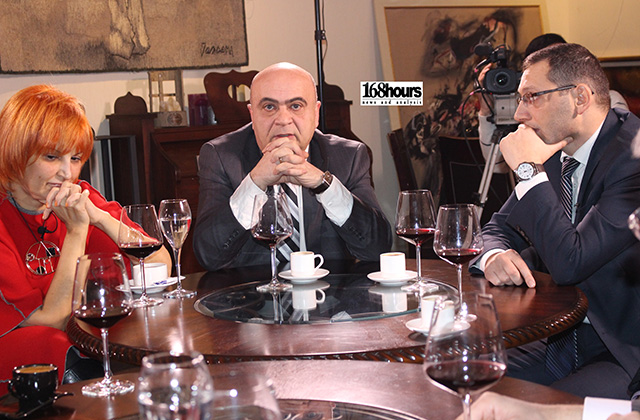
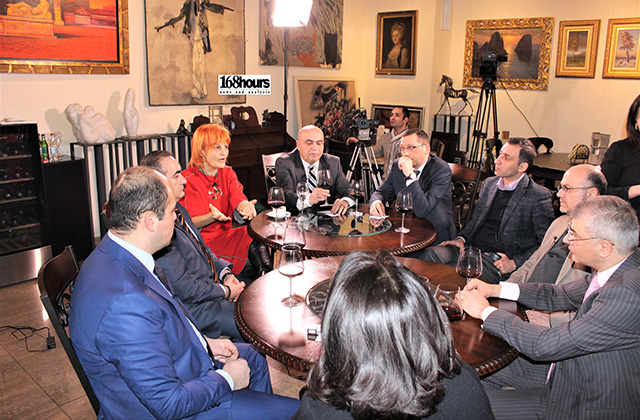
Armen Minasyan: I agree, that philosophical mind, intellectual discourse is necessary, however, progressive humanity has passed that way, and everyone has a chance. The experience of South Korea is really instructive—it can be studied, comprehended. I consider, evolutionally we have rather serious progress. In particular, if we compare the Republic of Armenia after 1994 and now, immense qualitative difference is observed, and it shouldn’t be denied, simply an agenda should be developed from inside—a civil agenda and attempt to receive solution in the political agenda. The civil society is the most crucial circle in formulating issues, however, we should get rid of the template agenda brought from abroad and formulate ours.
“Political elite is changing in Armenia”
Armen Mazmanyan: Firstly, I should advise the society to believe in themselves, they should make any change, not to sell their votes, make a sincere choice, not to avoid from voting, and I consider, in any case, we need healthy optimism. If we’re led by pessimism, I consider we won’t reach anything. We speak much of elites, political decisions, strategies are really resolved among the political elites, unfortunately, in our society our intellectual elite isn’t so strong to be able to have influence on our political elite. We underestimate how the political elite is changing itself. It seems to me there are signals to see that the political elite is changing.
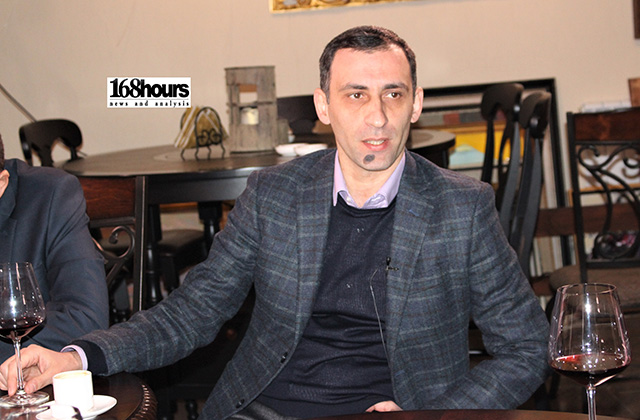
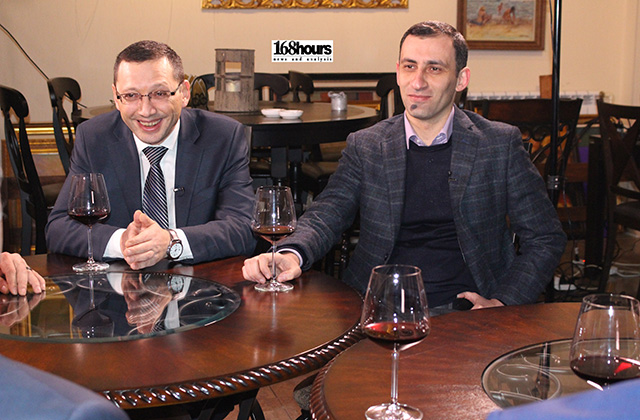
It’s a very important factor that currently our society socializes much with the outer world, we are an open society in that regard. We have much inflow from the Diaspora, people with progressive ideas are visiting our country, we underestimate that critical mass of those people may have certain role at some moment. Change should be recorded in a way so that we won’t even notice it. Some things have already changed, maybe we don’t assess or underestimate.
Satik Seyranyan: Do you mean Government change?
Armen Mazmanyan: It’s a signal for me, that incumbent authorities undergo changes. I observe some positive tendencies here.
“The idea of progressive state should be introduced into state-building and make is acceptable to the society”
Aghasi Tadevosyan: I don’t formulate my approach as pessimism, but as objectivism, realism. These elections are lost elections, the fact will remain that these elections won’t improve, if not worsen the situation. If the opposition isn’t able to propose new ideas, at least it should propose alternatives to change functioning political vectors, and currently I don’t see that. One of the most important points is how they see transformation of the state in the forthcoming 5 years and through which programs it can be implemented? That program supposes they should also show human resources that political party or alliance has, and maybe after the victory, appoint them as ministers, heads of departments and etc. It should point at those financial resources, through which those issues should be solved.
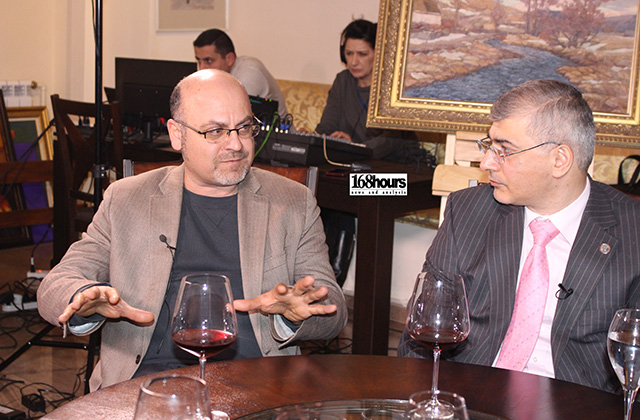
Currently any political power isn’t ready to appear with such real plans. The concept of progress should be introduced in state-building and make it acceptable to the society. Anyone attempting to appear as opposition, should set forward a strategic issue, should attempt to have ideologies and train people to them. Besides the fact that currently there is a large group casting a vote for RPA and PAP, there is another large group saying they won’t go to elections, as they see no sense. Those people are waiting for a power, which will have a sense. Our opposition is yet a poor opposition, weak opposition.
Satik Seyranyan: And it isn’t conditioned by finances.
Aghasi Tadevosyan: Of course, finances are important, however, here cultural capital is much more important, i.e. the concepts that they can take from inside and convincingly generate them. The opposition today speaks almost in the same language and rhetoric, like the authorities, that’s why it’ll lose, that’s why it should change its lexicon and top ideas. It should attempt to introduce a sense into the state. Our state today has no sense.
Satik Seyranyan: Mr. Khurshudyan, is there a threat that post-election processes may lead to “Sasna Tsrer-2” situation, opinions on which are already being cast to the arena by individuals introducing that political unit, and what should be done not to face that?
Ashot Khurshudyan: It’s very easy in Armenia to reach the top from the bottom, as that middle circle is so narrow, that it almost doesn’t exist, and in likewise models revolution is easy to implement. In some sense Armenia is in that situation. To speak of any issue in Armenia, you need to revolt, make demonstrations. Meanwhile, in states solving complicated issues there are different platforms to find the solution to the issues and develop them. That dimension lacks in Armenia, it’s closed, nothing changes until people complain, i.e. we should think over how to create that average field, which will become both an absorber and a filter.
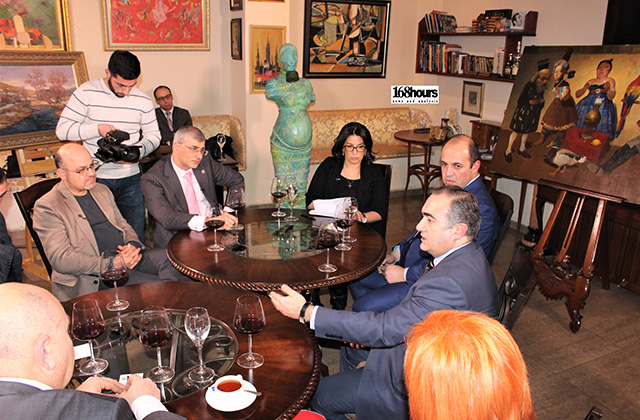
Satik Seyranyan: Is that possible through elections?
Ashot Khurshudyan: Elections are its only crucial element. We don’t have the culture of debates in our political culture. Everyone says what he/she has in mind through megaphone, however, they attempt not to intersect with one another, meanwhile, it’s very important.
Satik Seyranyan: Mr. Melik-Shahnazaryan, can organizations or people in the Diaspora have some influence on the outcome or control of election processes?
Hrant Melik-Shahnazaryan: I consider they may have an effect on the atmosphere only, regarding in which atmosphere post-election processes may develop. We already see that discourse is developing in that direction, i.e. people, who did nothing for a lasting period for that election process to pass, as it’s accepted in civil societies, on the day of voting they can’t have an effect and record desirable results.
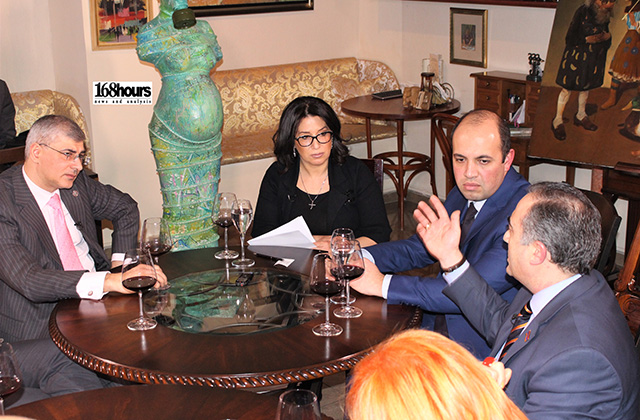
Satik Seyranyan: Popular musician Serj Tankian, for instance, how should he at least recognize Vle from Sari Tagh [conditional name—editor] and control elections?
Hrant Melik-Shahnazaryan: We are eager to see a textbook society. When Anush Sedrakyan says we won’t have political parties, I agree, however, if in a society 1+1 isn’t always 2, but a different number, it doesn’t mean that it’s wrong, but it means, we are dealing with other reality, whose opinion we need to take into consideration and even Vle from Sari Tagh or Robert Abajyan, who also was “a good chap” manifested himself somewhere and contributed to solution of a crucial issue. We need to understand the peculiarities of our society and create ideal condition to us, relying on that reality and our peculiarities as well. People should be given the advice to refrain from external influence, find one point in parties, which they estimate, and cast their vote in its favor and know why they voted for that party, as in our country a person votes, but doesn’t understand for which he/she casted the vote.
Tevan Poghosyan: Enshrining of Article 16 of Constitution, by which the state has assumed a positive liability to boost philanthropy for providing self-financing of various civil society institutes, which means on the day the society starts to pay to our civil society institutes, that time it’ll become a client, if not, someone will come from abroad, provide grants, donors, order and everyone will be active. The classical variant is “Electric Yerevan” or “Dem em” movement issue, they came, recorded some change, but on the day they were to gather and control, monitor audit, they didn’t do it. We need to understand that the civil society can’t be an institute, its relations through some institute of an ordinary inhabitant up to decision-makers. This connection is developing this very way, as the person from the bottom knows, that through this institute it may impact these or those issues, and he/she knows that without that institute he/she can’t have an effect. Until we don’t develop that connection and it doesn’t become a living phenomenon, we’ll always have an issue regarding how to transmit the messages.
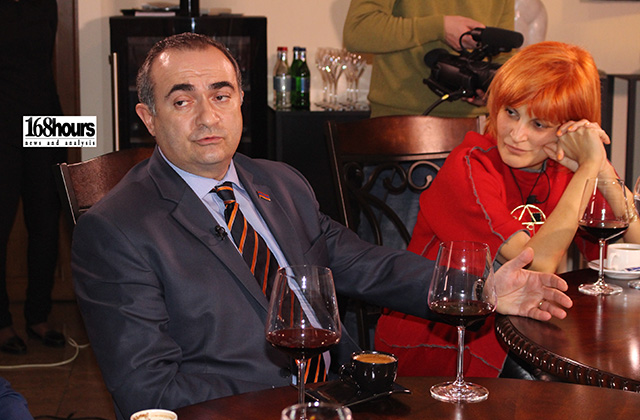

Maybe the Diaspora will come and help with its example, saying that person like Serj Tankian and others left their job, and doesn’t earn money…They’ll bring in the sense of that sacrifice, they’ll show that even they may be beaten by Vle from Sari Tagh, by a policeman, but…Finally, let’s not forget when our young observers and reporters were ready to be beaten, we recorded changes by influencing on the results. This is my imagination on the reality, that at least in 2018 we may have more intensive military operations. Accordingly, in case of any political party answer to the question what you’ll do that the Republics of Armenia and Artsakh were ready for war, will be a criterion. I want to understand, is this situation assessed among the political powers or no? Only that time I’ll understand that I deal with a real political power.
Satik Seyranyan: Ms. Sedrakyan, you left a political power, which at least on statement level stated on its being pro-West political power. A part of the society attempts to orient by that, regarding which one is pro-West, at least as an alternative to pro-Russians. Is this choice correct or artificial?
Anush Sedrakyan: Such choice is rather clarified regarding system of values, it’s orienting and clear. It isn’t realistic for our situation. For pro-West international community Armenia has an issue to appear as a democratic country (and not being one), to receive grant, financial assistance. Against its background, when Vle from Sari Tagh and others gain all the votes for RPA and PAP, the following shadow component is left. By shadow procedure the authorities say to the opposition—I give you, grant you N percent of votes, which you aren’t able to gain, and I grant it to you, making you a tool in fictitious democracy process.
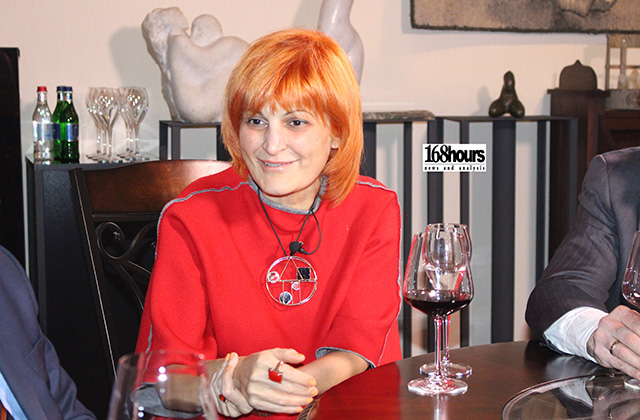
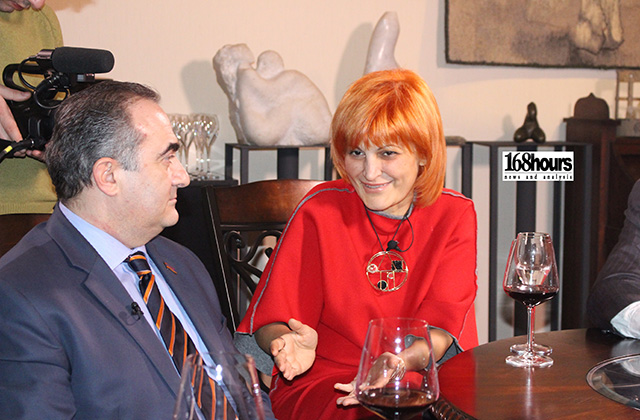
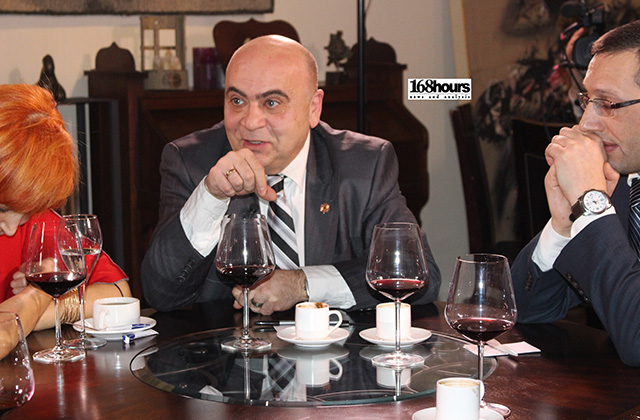
The most important is being forged—accessibility of the system of values to the public, i.e. until now we don’t know, we don’t have imagination on pro-West and pro-Russian ratio in Armenian society. Maybe we have individuals bearing those values. For instance, for a long time we got along with the idea that Paruyr Hayrikyan has pro-West orientation, however, these days we observe that suddenly he joins the biggest apologist of Russian orientation and says, “I’m going to make changes.” It already means that the discourse on the political level is decomposing.
Ani Keshishyan
Razmik Martirosyan
Photos—“168 Hours”


























